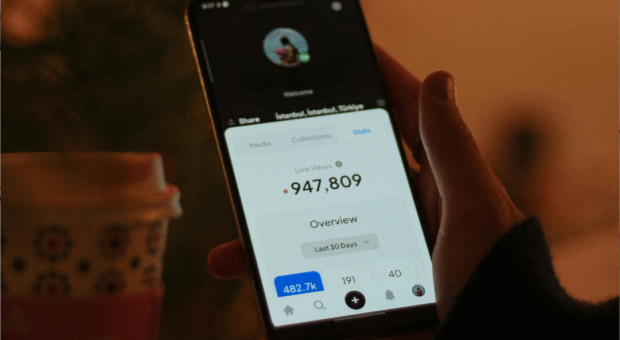
Categories:
We walked into 2020 with abundant excitement for what this new decade could bring –unemployment was at an all-time low, both small and large businesses were thriving, and social media marketing opportunities were booming. Instead, we were hit with curve balls that shook the world and turned our lives upside down in just the first six months of the year. As we work to navigate this new norm, and try to get comfortable in uncertainty, one thing is certain: nothing will ever quite be the same.
This is especially true for brands, big and small, that are figuring out what their next moves are. These brands – and the people that run them – are asking themselves questions like:
- What’s the right thing to do?
- Do I need to completely adapt my business to survive?
- How can I be sensitive to my customers during this time?
- Is it appropriate to continue marketing my product and/or service right now?
- If I do continue, am I crafting the right message to reach customers effectively?
These questions bring a marketing trend under scrutiny that was projected to grow exponentially in 2020 – that trend is influencer marketing. From Kim Kardashian selling waist trainers to the masses, to your more localized Instagram personalities “selling their lifestyle,” consumers have come to rely on social media figures to guide what they buy and why. But now, with shifting priorities at the forefront of every consumer’s mind, the influencer marketing bubble that was presumed to be made of steel just two months ago is now more fragile than ever – and potentially about to pop. In parallel to the dramatic changes we’re witnessing in our daily lives, influencer marketing will never quite be the same – and here’s why.
Marketing necessities over novelties
During this unchartered time, we’re witnessing a major shift in priorities. As budgets tighten and brands reevaluate their priorities, we are cancelling unnecessary subscription services, diversifying our social media feeds, cooking at home more than ever before (or, err, making bread), pausing our gym memberships, and hoarding groceries (aka toilet paper). While it’s too early to know the full affect this pandemic and the Black Lives Matter movement will have on businesses and purchasing habits, it’s important for companies to ask themselves a key question: is my product a novelty or a necessity? The answer to that question should frame your influencer marketing as we move through the next few months. If you’re selling something that’s a novelty, it doesn’t mean that there’s no market for your product – it just means that reframing your messaging and communicating that shift to your influencers will be key.
For example, if your product is a gummy that makes hair thicker (a once huge trend in the influencer world), instead of focusing on messaging about beautiful hair for going out and having fun with friends, try promotions about making your hair healthier from the comfort of your home and feeling like the best version of yourself. This simple shift in messaging will make all the difference to your audience and won’t bring your brand under scrutiny by making it seem like you believe you’re selling a necessary product. Because truthfully, the only necessities in our lives right now are food, safety, and health – and your influencers should be tapped into that reality.
People might forgive, but they don’t forget
The harsh truth of the current media landscape is that every business is under a microscope for what they stand up for, how they treat their employees, the safety precautions put in place to protect customers, and how they reframe marketing efforts amidst the current safety and social justice climate. From the companies that have stepped up by completely shifting their business models to make masks for medical professionals, to the companies that haven’t come out in support of anything, it’s important to remember that the world is watching and making decisions accordingly.
This is an important reality to consider when reviewing your marketing dollars for the year and refocusing your influencer efforts. Perhaps, it’s appropriate to pause your influencer marketing for now while you focus on paying your employees? Or maybe it still makes sense to tap into your influencers, but instead focus on how to adapt to the current landscape. Whatever your decision, be thoughtful, try to think beyond the situation we’ve found ourselves in, and realize that people will (or won’t) buy your product in the future based on the messaging and decisions you put out to the public during this sensitive time.
Authentic messaging
Influencers have come under fire time and time again over the past few years for airing tone deaf marketing messages to their followers. This messaging has often come in the form of selling products that we know influencers wouldn’t use without the paycheck attached to it. The wave of authentic product positioning has been building for the past few years with campaigns like #AerieReal, that uses unedited photos of women of all shapes, sizes, and races for their marketing campaigns. The beauty of this simple shift is that people are able to see a piece of themselves in your marketing campaign, and this will undoubtedly become truer during the year ahead.
For example, if your product is an at-home healthy meal prep kit, choose an accessible influencer that consumers can resonate with rather than a high-profile celebrity that undoubtedly has a professional live-in chef and won’t use that meal kit. That accessible influencer can talk about the stress of learning to cook and why this kit makes it simpler for them. While it shouldn’t have taken an international health scare or social movement to understand that people want to be spoken to in a real, authentic way by the brands they buy from, 2020 could be the year that pushes the fake influencer marketing wave to break.
Diversify to do what’s right
One thing 2020 has taught us is that we need to pay better attention to inclusivity of people of color in our marketing campaigns. This means everything from diversifying the people making decisions behind the scenes to including people of color in front of the camera. There are hundreds of extremely talented content creators in the influencer space that could be a great fit for your brand. When reviewing all of your influencer options, make sure that people of color have a seat at the table. The truth is that we can’t start to address systemic racism as a country until the brands we know and trust include people of color in their marketing – as marketers, we can all live that change by incorporating this thought into future campaigns.
So, what’s next?
There’s no doubt that influencing will continue to be a massive industry for marketers in the years to come, but a shift in execution for influencer marketing tactics is inevitable. From choosing the right influencers as the face of your brand, to crafting appropriate messaging, remind yourself of what consumers need right now and will need more than ever when this is over: authenticity, truth, and empathy. If you’re curious about ways to reframe your influencer marketing efforts, get in touch – we provide influencer marketing assistance for many of our clients and would love to help you create an authentic, meaningful influencer marketing strategy for your brand.
About Ethos
Ethos is a multiplatform branding agency that develops and executes integrated marketing campaigns across multiple channels for companies inside and outside of Maine.
At Ethos, we believe that the most effective way to set a company’s marketing course is by finding its core truth – its ethos. We know that once we discover and communicate that core truth, we can truly make a difference for each client’s unique marketing and business objectives.
With Ethos, you get more than a marketing agency. You get a long-term partner whose goals are your goals.
Learn more about the Ethos approach and the work we’ve done for our clients. Want to have a conversation about your brand’s core truth? Contact us!

